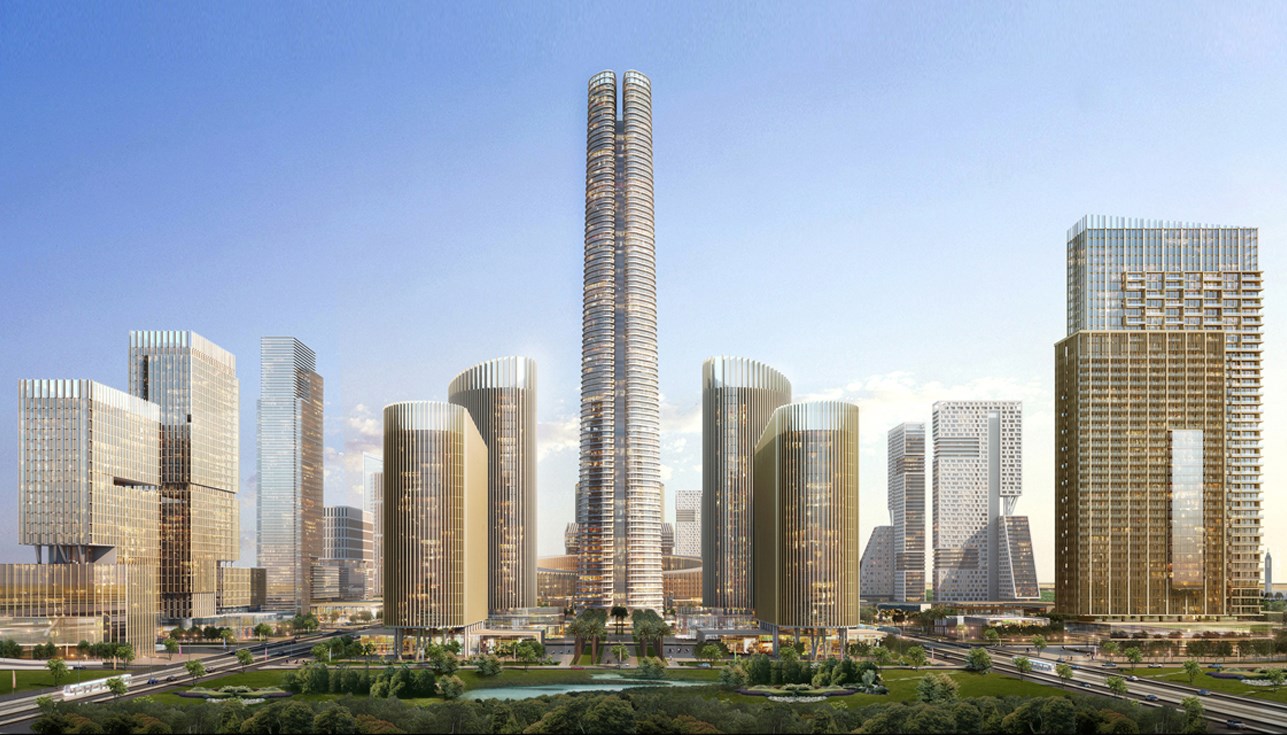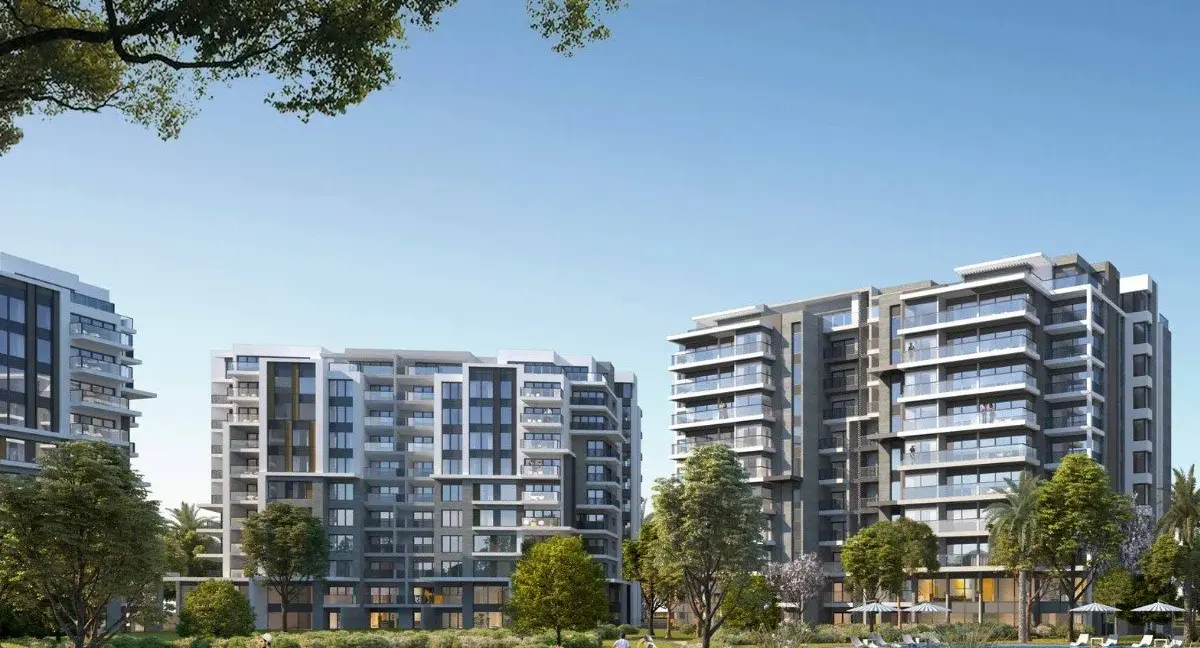Table of Contents
ToggleHave you not heard yet about Real Estate Market Trends in 2025?
Egypt’s real estate market has demonstrated remarkable resilience and momentum in the second quarter of 2025, despite facing challenges from inflation, currency fluctuations, and rising construction costs. This report explores the primary trends shaping the residential, commercial, and office sectors of Egypt’s property landscape during Q2 2025. It also highlights key growth regions, market drivers, investment metrics, and the strategic shifts developers are making to meet evolving buyer demands.
Macroeconomic Context and Price Trends
Egypt’s property market has been strongly influenced by broader macroeconomic dynamics, particularly the devaluation of the Egyptian pound and persistent inflationary pressures. While inflation moderated to around 13.6% in March 2025, it remains a significant factor in construction costs and market pricing. Additionally, currency depreciation in 2024 contributed to higher material import costs and led developers to increase unit prices.
In this context, real estate prices nationwide rose by approximately 30.4% year-on-year by April 2025. Even after adjusting for inflation, this represents a real growth of around 14.5%, suggesting a strong demand-side momentum. Quarter-over-quarter, from January to April 2025, prices rose by around 7.5%, reinforcing the bullish sentiment among investors and developers.
Despite these upward trends, premium regional real estate saw a slight price decline of 1.9% during Q2 2025. This suggests that while overall market demand is robust, the luxury segment may be experiencing temporary saturation or more selective buyer behavior.
Residential Market Performance
The residential real estate sector remains the primary engine of growth. Egypt’s top 10 developers reported combined sales of EGP 290 billion (approximately USD 5.9 billion) in Q1 2025, a 23% increase compared to the same period in 2024. These sales represented about 18,500 units at an average price of EGP 15.7 million per unit, reflecting a 25% increase in pricing year-on-year.
The most dynamic areas include East Cairo’s Fifth and Sixth Settlements, the New Administrative Capital, and coastal developments along the North Coast. Prices per square meter in these areas saw significant increases:
-
Fifth Settlement: EGP 60,000–200,000
-
New Administrative Capital: EGP 50,000–70,000
High demand, inflation pass-through, and infrastructure developments contributed to these price escalations.
Rental yields have also improved. National average gross rental yields reached approximately 6.77% in Q2 2025, up from 5.53% in Q1 2024. In New Cairo, yields on studio apartments were reported at over 10%, while one-bedroom and two-bedroom apartments yielded 7.18% and 7.06% respectively. Other areas like Mohandessin offered yields of 13%, and Sheikh Zayed ranged between 5% and 8%.
Office and Commercial Market Trends
The commercial and office real estate sectors also exhibited growth. In Q1 2025, approximately 58,000 square meters of Grade A office space were added in Greater Cairo, bringing total inventory close to 1.9 million square meters. The vacancy rate fell to 8.6%, compared to 10.9% the previous quarter, as demand for high-quality workspaces increased among multinational companies and growing local businesses.
Office rents climbed by 4–5% year-on-year, reflecting both improved occupancy and inflation-adjusted pricing strategies. Cairo’s retail sector added about 27,000 square meters of space during the same period. While occupancy remained steady, foot traffic showed signs of recovery, especially in malls and mixed-use developments. As a result, retail revenues and RevPAR (revenue per available retail area) increased by roughly 29% compared to Q1 2024.
Market Drivers and Influences
Several factors are influencing Egypt’s real estate trends in Q2 2025:
Currency Devaluation and Inflation
The Egyptian pound’s significant devaluation in 2024 led developers to raise property prices to offset increased material and import costs. Inflation, while stabilizing slightly in early 2025, continues to influence pricing and buyer behavior. Many buyers now seek properties as a hedge against inflation, fueling demand and supporting price appreciation.
Domestic Demand
Over 95% of real estate transactions in Egypt are driven by domestic buyers. This strong local demand is sustained by population growth, urbanization, and lifestyle shifts among Egypt’s expanding middle and upper-middle classes. Many of these buyers are looking for long-term investments, secure rental income, or homes in newer satellite cities with improved amenities.
Shift in Developer Strategy
To align with changing affordability conditions, many developers have altered their product offerings. The focus has shifted from sprawling villas to smaller, ready-to-move-in apartments with competitive prices. In addition, developers are offering extended payment plans of up to 10 years, often interest-free, to attract buyers who are wary of bank-financed mortgages amid high interest rates.
Mixed-use communities that combine residential, commercial, and recreational facilities are gaining popularity. These developments are especially appealing in satellite cities like New Cairo and the New Administrative Capital, where infrastructure and public services are catching up with demand.
Regional Growth Patterns
Several geographic zones are leading the market’s performance:
-
New Cairo and the Fifth Settlement continue to attract affluent buyers due to established infrastructure, international schools, and shopping centers.
-
Sixth October and Sheikh Zayed appeal to the upper-middle class, offering a balance between affordability and modern amenities.
-
New Administrative Capital is rapidly evolving as a political and administrative hub. Its real estate market has gained traction due to the relocation of government ministries and availability of modern housing.
-
North Coast remains a seasonal hotspot, but developers are increasingly building year-round communities to maximize usage and rental potential.
Investment Metrics and Market Outlook
The Egyptian residential real estate market is projected to be valued at around USD 20 billion by the end of 2025, with an anticipated compound annual growth rate (CAGR) of approximately 11% through 2033. Analysts expect property prices to continue rising by 10% to 30% throughout the remainder of the year, depending on location and segment.
Rental yields are expected to remain attractive, especially in mid-tier and emerging areas. As a result, real estate continues to offer a safe and inflation-resistant investment vehicle in Egypt’s volatile economic environment.
Developers and investors are also exploring sustainability and smart home technology as new value propositions. Energy-efficient buildings, digital home management systems, and green construction are slowly gaining attention among environmentally conscious and tech-savvy buyers.
Conclusion
The second quarter of 2025 marks a pivotal period for Egypt’s real estate market. Despite macroeconomic headwinds, the sector has shown strong growth, particularly in residential housing and office space. Price appreciation, healthy rental yields, and sustained domestic demand point to a buoyant market.
However, the landscape is shifting. Developers must now cater to affordability constraints by offering smaller, flexible, and more accessible housing products. Meanwhile, investment opportunities lie in emerging districts and mixed-use developments, especially those designed to serve Egypt’s growing urban middle class.
Looking forward, Egypt’s real estate sector appears poised for continued expansion, albeit with strategic recalibration to align with affordability, macroeconomic realities, and evolving consumer expectations.
Frequently Asked Questions
What are the main factors driving real estate price growth in Egypt in Q2 2025?
The primary drivers of price growth in Q2 2025 include:
-
Inflation and currency devaluation: Egypt’s inflation rate remains relatively high (around 13.6% in March 2025), and the Egyptian pound devalued sharply in 2024. This led developers to increase prices to maintain profitability and offset import costs.
-
Strong domestic demand: Over 95% of real estate transactions are driven by local buyers, supported by population growth, urban migration, and a preference for property as an inflation hedge.
-
Limited supply in desirable areas: Popular areas such as New Cairo and the New Administrative Capital are experiencing a supply-demand imbalance.
-
Shift in developer strategy: Developers now offer smaller, more affordable units with attractive payment plans, drawing in a broader buyer base.
How much have real estate prices increased in Egypt year-over-year by Q2 2025?
Nationwide real estate prices in Egypt increased by approximately 30.4% year-over-year as of April 2025. After adjusting for inflation, this represents a real price growth of about 14.5%. This reflects both cost-push inflation and strong demand-side support.
What changes are developers making to adapt to buyer needs in 2025?
Developers are responding to economic realities by:
-
Offering smaller units (studios and one-bedrooms instead of large villas)
-
Providing long-term, interest-free payment plans (up to 10 years)
-
Focusing on mixed-use developments that combine residential, commercial, and recreational facilities
-
Delivering fully finished units to attract ready-to-move buyers who want to avoid high furnishing costs
These strategies make properties more accessible to middle-income buyers and sustain sales volume.
Which areas in Egypt are seeing the highest residential property prices in Q2 2025?
The top-performing areas include:
-
Fifth Settlement (New Cairo): EGP 60,000 to 200,000 per m²
-
New Administrative Capital: EGP 50,000 to 70,000 per m²
These regions are popular due to improved infrastructure, proximity to administrative and business hubs, and higher perceived quality of living.
